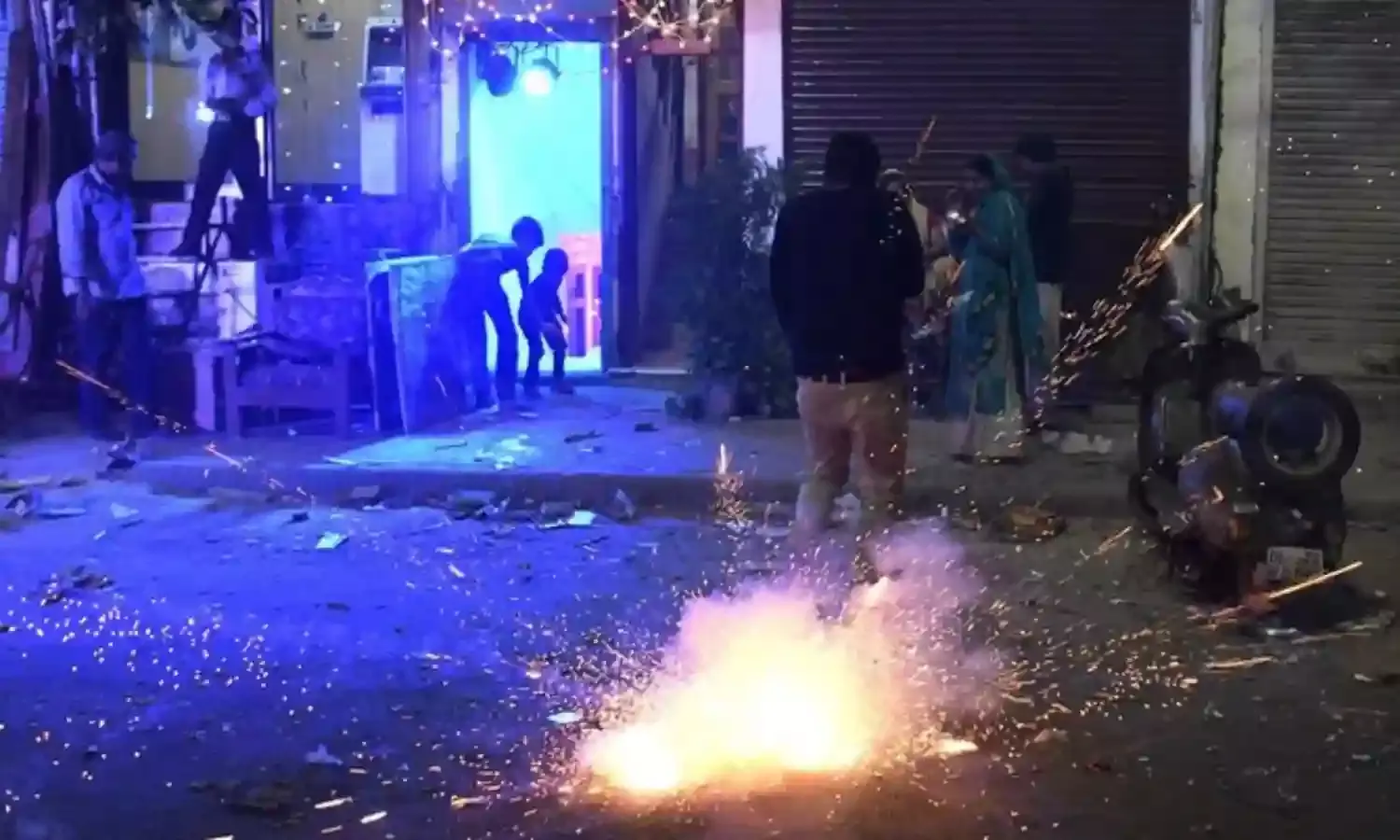Why Do We Defy Court Orders?
People were found bursting crackers while wearing anti-pollution masks
B.R. Ambedkar, architect of the Indian constitution, expressed doubts in his closing speech to the Constituent Assembly about the effectiveness of the functioning of the constitution, whose working would depend wholly upon “people and the political parties they will set up as their instruments to carry out their wishes and their politics”.
Ambedkar argued that the use of constitutional methods by people to achieve their purposes would bring benefit; whereas the use of revolutionary methods would lead to disruptions and failure. He also expressed concerns about the future of democracy in India, and the threat of its giving way to dictatorship, if people held onto unconstitutional methods of achieving social and economic objectives, which he termed the “grammar of anarchy”.
Today our country is the epitome of the fears of its maker. We are witnessing the emergence of groups which believe in adopting hooliganism and illegal means as a tool to assert their ideologies, while completely overlooking the mandates of the Supreme Court of the country. The world over dictatorial regimes are replacing democratic institutions, limiting the meaning of constitutionalism.
The recent turn of events in our country in the past few months also highlight the prevailing ideology among the masses, that of law violator and not law compliant, much like our government.
A society marred with an inherent psyche of disrespect towards law is nothing but a recipe for chaos, eventually moving towards disintegration and degradation.
The most recent example is the indiscreet violation of the Supreme Court order directing that firecrackers were to be used on Diwali only during fixed hours. The order was passed in view of the health emergency caused by the increased amount of pollutants in the air, especially in north India. However, it was indiscriminately flouted making the air quality reach hazardous levels on and after Diwali.
Interestingly, people were found bursting crackers while wearing pollution masks!
There were also those who burst crackers only to defy the order and as a mark of protest against the ban imposed by the apex court.
Such behaviour is also seen in the ongoing fight for rights at the Sabarimala temple in Kerala. Women are still struggling to realise their constitutionally guaranteed rights, which were upheld by the Supreme Court in its decision in the case of India Young Lawyers Association v State of Kerala (September 2018). The judgement was followed by “Save Sabrimala” and “Ready to Wait” campaigns initiated to protest against allowing young women to enter the temple.
The scene of young women between the age group of 10-50 years wearing safety gears and bulletproof jackets being escorted by hundreds of police personnel to the temple only to be forced to return because of the monumental protests was contemptible. The temple priests, backed by devotees, have refused to open the temple and even threatened to lock it down for the entire season if the women try to enter its sanctum sanctorum.
It is a matter of great shame for the country that no woman has been able to enter the temple even after the decision of the Constitution Bench of the Supreme Court. The government too has failed miserably to implement the order which indicates its intentions and sincerity towards implementation of the same.
There are numerous other examples of cases where execution and implementation have become an impossibility due to lack of societal will – such as the prohibition of child labour in hazardous industries, the prohibition of manual scavenging, or improving the conditions of widows living in Vrindavan shelter homes, to name a few.
In fact, state and society undertake a decision making process and decide to follow and implement only those orders which are convenient and which favour the ideologies of various majorities.
In order to ensure that the country does not become a dictatorship managed by goons, we need to replace the whimsical and dishonest attitude of the society by institutionalising constitutionalism.
The contemptuous psyche of the masses which encourages the disruptive forces needs to be replaced with the ideals of rights, liberty, equality and so on. It is only by instilling the sense of duties, burdens and responsibilities alongside rights, benefits and privileges that we can avoid cases of contempt of Supreme Court orders.





